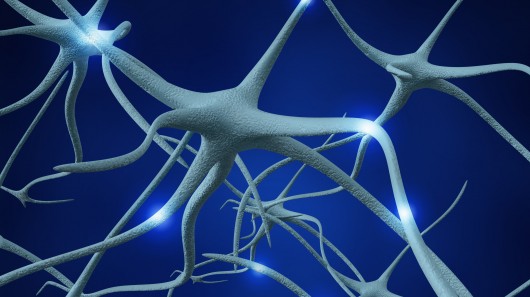
As scientists probe the molecular underpinnings of why some people are prone to obesity and some to leanness, they are discovering that weight maintenance is more complicated than the old “calories in, calories out” adage.
In a new study, a team of researchers led by the University of Pennsylvania School of Veterinary Medicine’s Dr. Kendra K. Bence, an associate professor in the Department of Animal Biology, have drawn connections between known regulators of body mass, pointing to possible treatments for obesity and metabolic disorders.
The study, published in the Journal of Biological Chemistry, also present intriguing clues that these same molecular pathways may play a role in learning and perhaps even in some forms of brain cancer.
Previous research by Dr. Bence and colleagues highlighted the important role of the enzyme protein tyrosine phosphatase 1B (PTP1B) in regulating body weight. They showed that PTP1B acts to counter the action of the hormone leptin, which is produced by fat cells and suppresses appetite. When mice have been bred to lack PTP1B, they remain lean even when they have unlimited access to high-fat food.
Yet other work has shown that mice lacking both leptin and PTP1B are trimmer than mice that lacked just leptin. “That nagged at us because it clearly indicates that there are other targets than just leptin signaling for this phosphatase,” Dr. Bence said.
That sparked a search for these theoretical targets. The team knew that PTP1B has an affinity to recognize a particular sequence of amino acids. Looking for other proteins with this sequence, they turned up tropomyosin receptor kinase B (TrkB), a receptor in the brain that binds to a molecule called brain-derived neurotrophic factor (BDNF).
“That was interesting because mutations in the BDNF gene have been found in study after study to be strongly correlated with body mass index in humans,” Dr. Bence said.
BDNF stimulates PTP1B, leading to greater energy expenditure
To see if PTP1B does in fact act upon TrkB, the researchers first performed a series of experiments on neuronal cells in culture. They found that boosting expression of PTP1B suppressed BDNF and TrkB activity. Conversely, inhibiting PTP1B activity enhanced the activity of the BDNF-TrkB signaling pathway. The researchers also used biochemical assays to confirm that PTP1B physically interacts with TrkB.
Moving to mice, Dr. Bence and colleagues gave animals bred to lack PTP1B a dose of BDNF in their brains, an action that, in normal mice, reduces appetite. Lacking PTP1B didn’t change this fact. But these mice did differ from normal mice in one important way: their core temperature. The genetically altered mice had higher core temperatures after a dose of BDNF than normal mice, an effect that correlates with increased energy expenditure — calories out — and thus causes weight loss.
“This is the first time that anyone has linked PTP1B with BDNF and TrkB in vivo,” Dr. Bence said. “And it was interesting to see that the effect on weight regulation seems to be through impacting core temperature and not food consumption.”
Implications for cancer prevention
Finally, because BDNF is known to support the growth and survival of brain cells, the team examined whether PTP1B had an effect on that function. Inhibiting PTP1B in cultured neuroblastoma cells increased outgrowth of neuron projections called neuritis, a potential indicator of brain maturation and development.
“This opens up really interesting new avenues for investigation,” Dr. Bence said, “because Trk receptors are critically important during neurodevelopment, particularly just before and right after birth. It could be that PTP1B and BDNF are playing a role in programming the brain’s ability to regulate body weight during a critical period of brain development.”
What’s more, because BDNF is known to play a more general role in brain function, the findings suggests that PTP1B, too, may be influencing more than obesity and metabolism. Trk receptors, for example, are overrepresented in neuroblastoma, a cancer of the nerve cells that often affects children.
“The most exciting thing to me is this whole new area of investigation into the role of PTP1B regulation of all the Trk receptors,” she said, an area that might include explorations of the receptors’ role in neurogenesis, learning and memory and perhaps even neuroblastoma.
